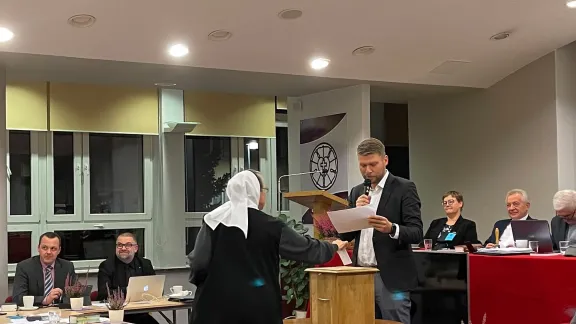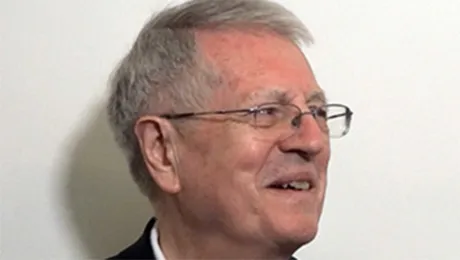
Members of the Synod of the Evangelical Church of the Augsburg Confession in Poland vote to ordain women. Photo: Agnieszka Godfrejów-Tarnogórska
LWF welcomes the decision by the Evangelical Church of the Augsburg Confession in Poland
(LWI) - The Lutheran World Federation (LWF) has welcomed the decision by the Evangelical Church of the Augsburg Confession in Poland (ECACP) to allow women to be ordained as pastors. In a decision on Saturday 16 October, 45 members of the church’s Synod voted in favor of a motion presented by its Commission on Women, with 13 voting against and 1 abstention.
The discussion on the ordination of women in the Lutheran church in Poland has been ongoing intermittently for over 70 years. During the last vote in 2016, the number of supporters of women’s ordination outnumbered, for the first time, the number of opponents, but still fell short of the two-thirds majority required to change church law.
Presiding Bishop Jerzy Samiec of the ECACP said: “I believe it’s a good decision and we will see good fruits come of it. It has been a long process for the church and now we will find a way of walking together into the future.”
Samiec added: “I am particularly happy for women who are studying theology. In the past I have been approached by women saying they didn’t see a place for them in the church. Now that has changed.”
I believe it’s a good decision and we will see good fruits come of it. It has been a long process for the church and now we will find a way of walking together into the future.
Rev. Dr Marcia Blasi, LWF's Program Executive for Gender Justice and Women's Empowerment, welcomed the news, saying: "We celebrate with gratitude the decision taken on Saturday. May women’s gifts in leadership and service contribute to strengthening the unity of the body of Christ."
Blasi added: “Our prayers are with all the women who have prepared, worked and waited hopefully for this day, as well as with the church leadership that took this step forward. Moving towards gender justice in the church and in society is our shared commitment and witness to the love of God in the world.”
Our prayers are with all the women who have prepared, worked and waited hopefully for this day, as well as with the church leadership that took this step forward.
Since 1963, theologically trained women have been able to teach, conduct services and engage in pastoral work in parishes. In 2008, the Synodal Commission on Theology and Confession concluded that there were no theological obstacles to the ordination of women to the ministry.
Since 1999, women could be ministers and serve as deacons, leading services and administering the sacraments, including, from 2016, the Sacrament of Holy Communion, but were not allowed to run a parish on their own or stand for the ministry of bishop. The new resolution will come into effect on 1 January 2022.
LWF/P. Hitchen


